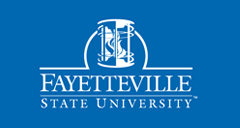Abstract
Wilson Kwamogi Okello's *On Blackness, Liveliness, and What It Means to Be Human* theorizes the inheritances of systemic anti-Blackness while affirming Blackness as a site of creativity, vitality, and world-making. Okello examines how Western humanism and the coloniality of knowledge have excluded and restricted Black life both socially and within educational systems and epistemology. The volume is composed of three parts and critiques the regulative logics of higher education, the aesthetics and relationality of Black life, and the pervasive reach of carceral systems. At its core, Okello proposes a reconceptualization of Blackness in terms of "liveliness," viewing it as a generative power that goes beyond mere survival and resistance. Through expressions of Black specificity, imagination, and limitless possibility, he challenges the deficit perspectives that depict Blackness as a source of scarcity instead of a means of world-making. This review highlights Okello's theoretical synthesis, which presents a dual mandate: dismantling anti-Black systems while also establishing futures grounded in justice, equity, and the transformative power of Black life.
Recommended Citation
Ebesu, Duane
(2025)
"Boundless Possibilities: Reimagining Blackness in Wilson Kwamogi Okello’s On Blackness, Liveliness, and What It Means to Be Human,"
Journal of Research Initiatives: Vol. 9:
Iss.
1, Article 13.
Available at:
https://digitalcommons.uncfsu.edu/jri/vol9/iss1/13
Included in
Adult and Continuing Education Administration Commons, Bilingual, Multilingual, and Multicultural Education Commons, Higher Education Commons, Higher Education Administration Commons, Higher Education and Teaching Commons, Student Counseling and Personnel Services Commons
